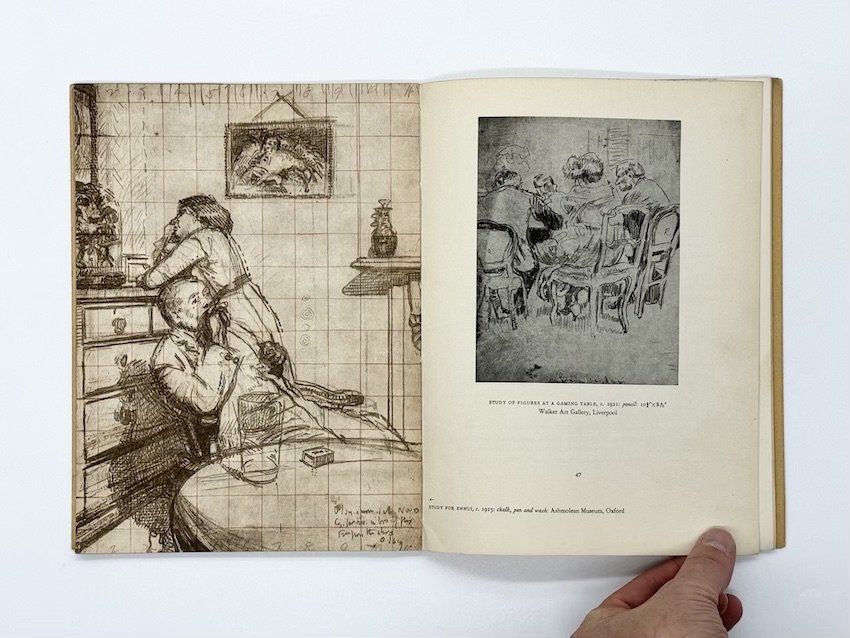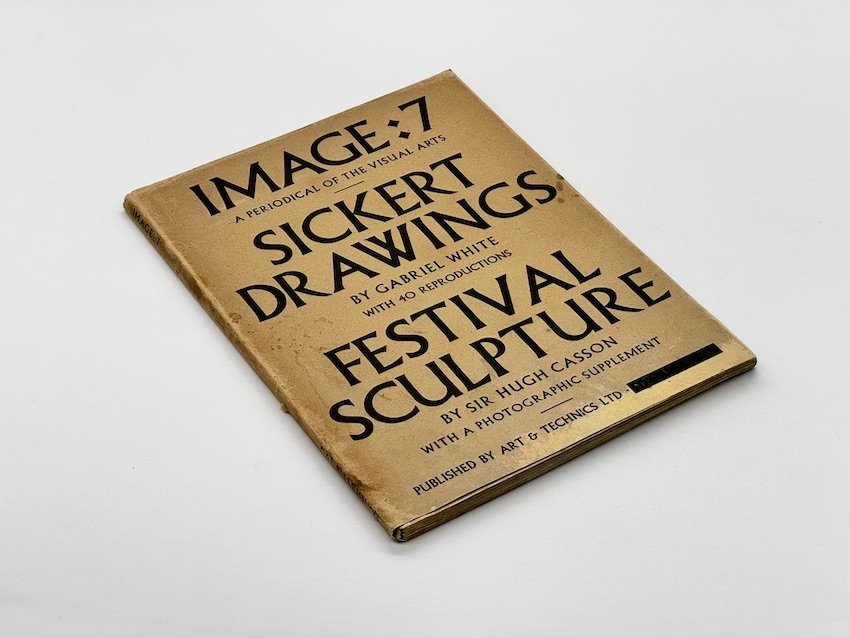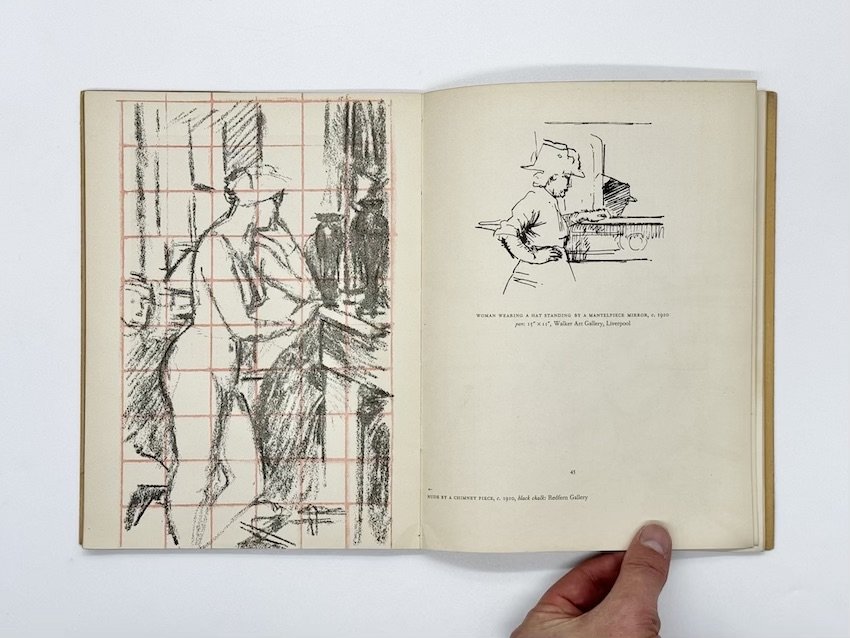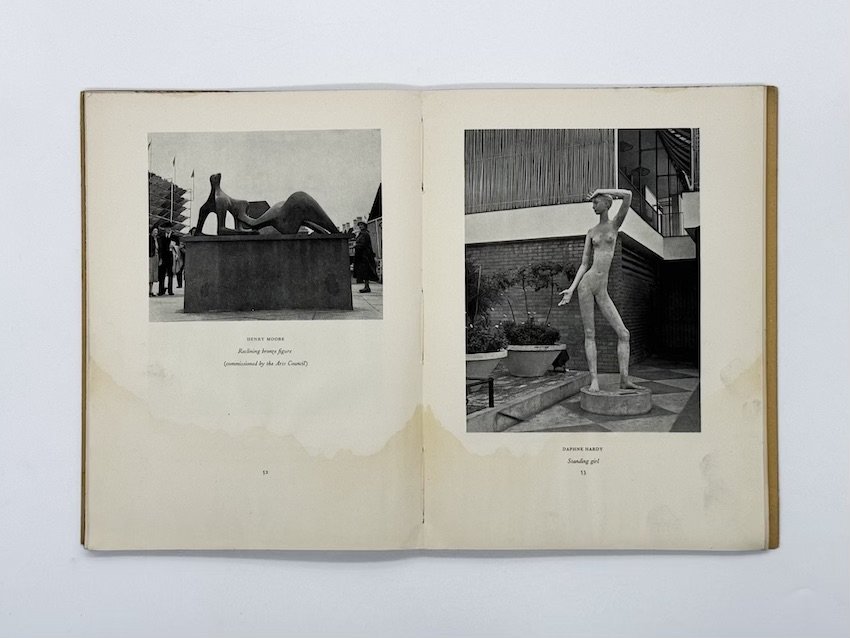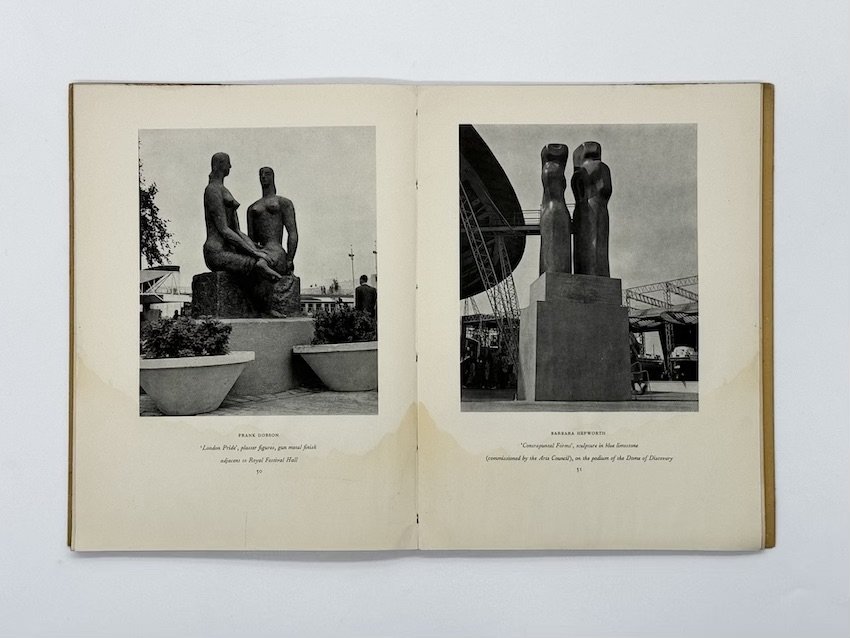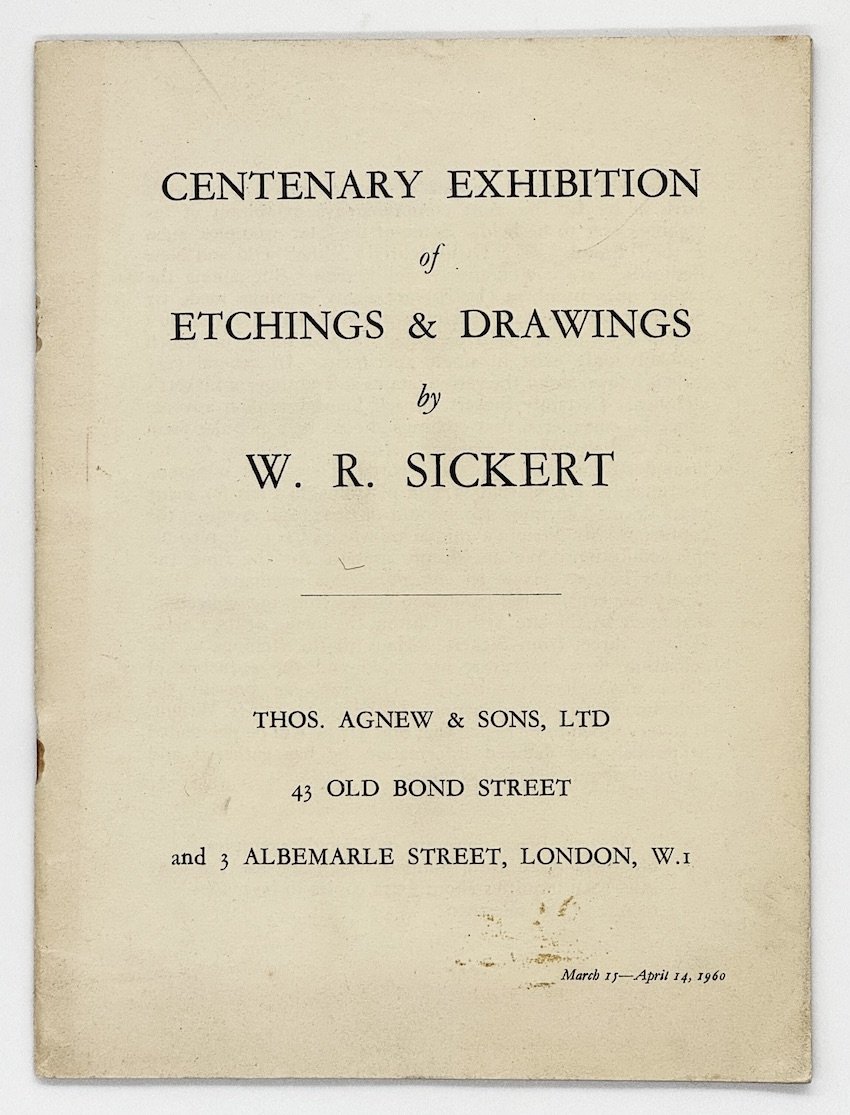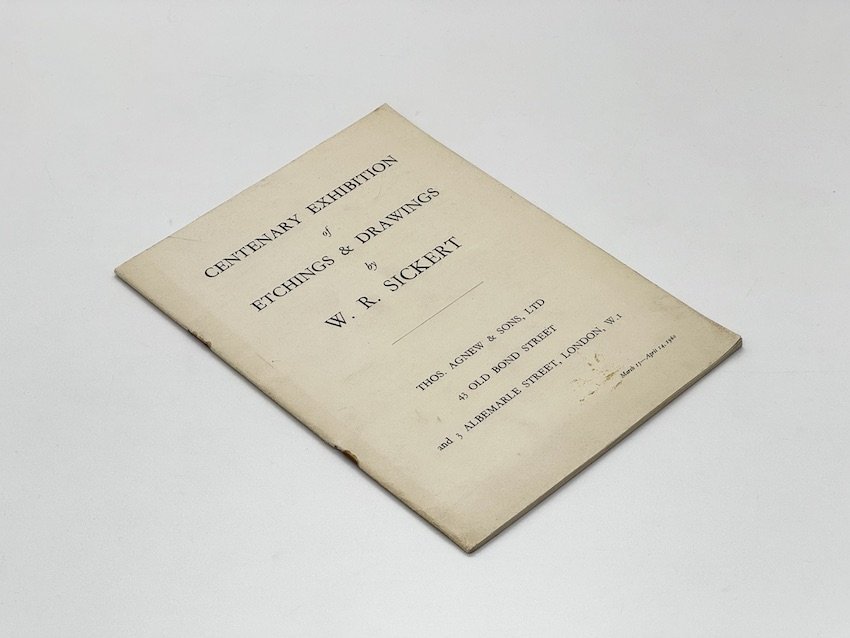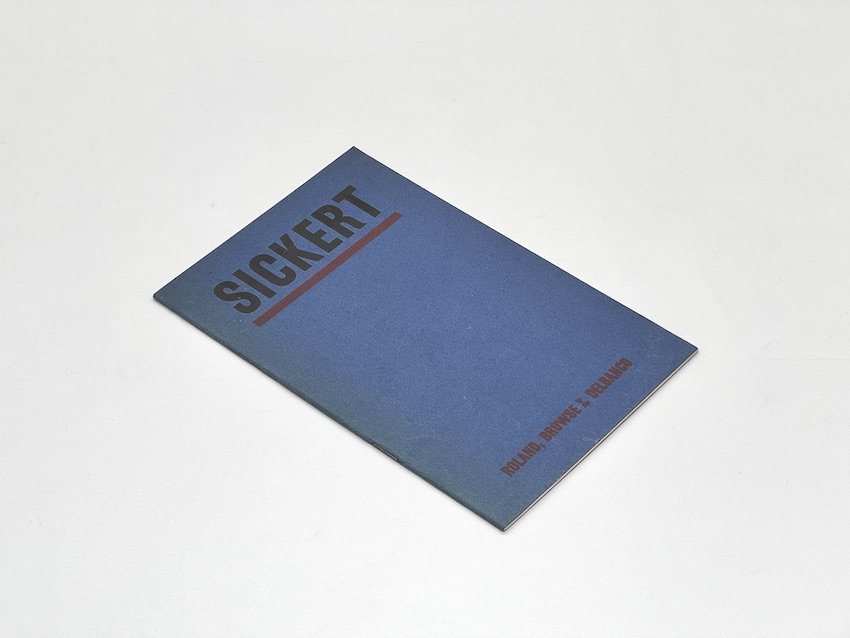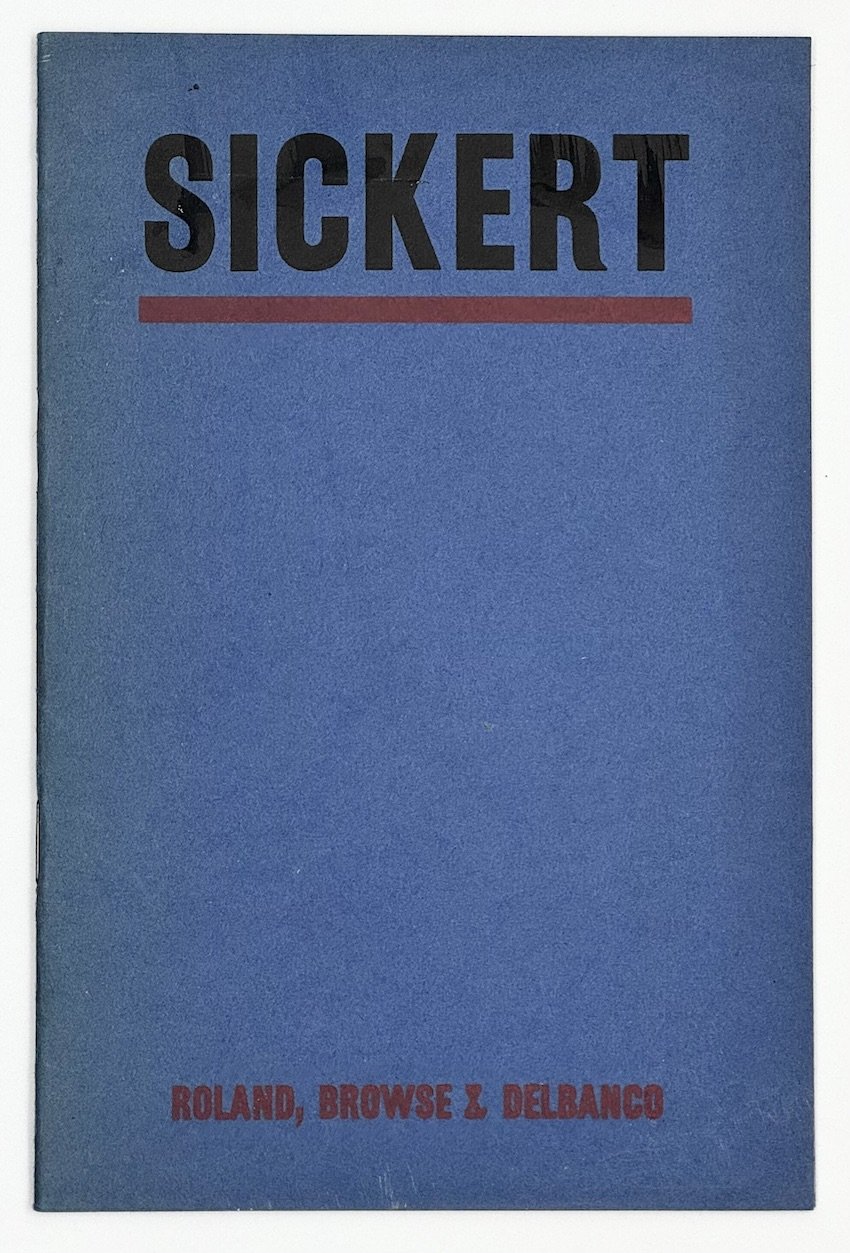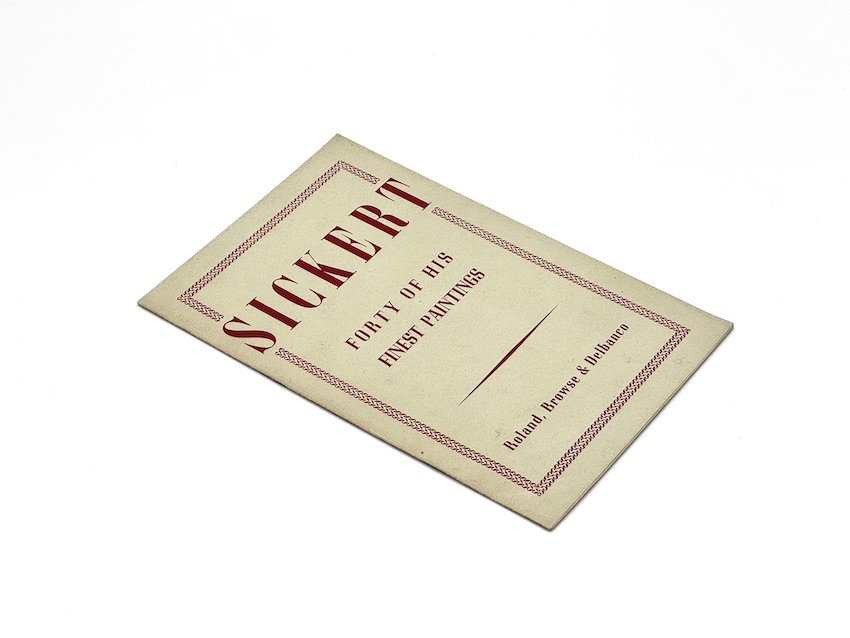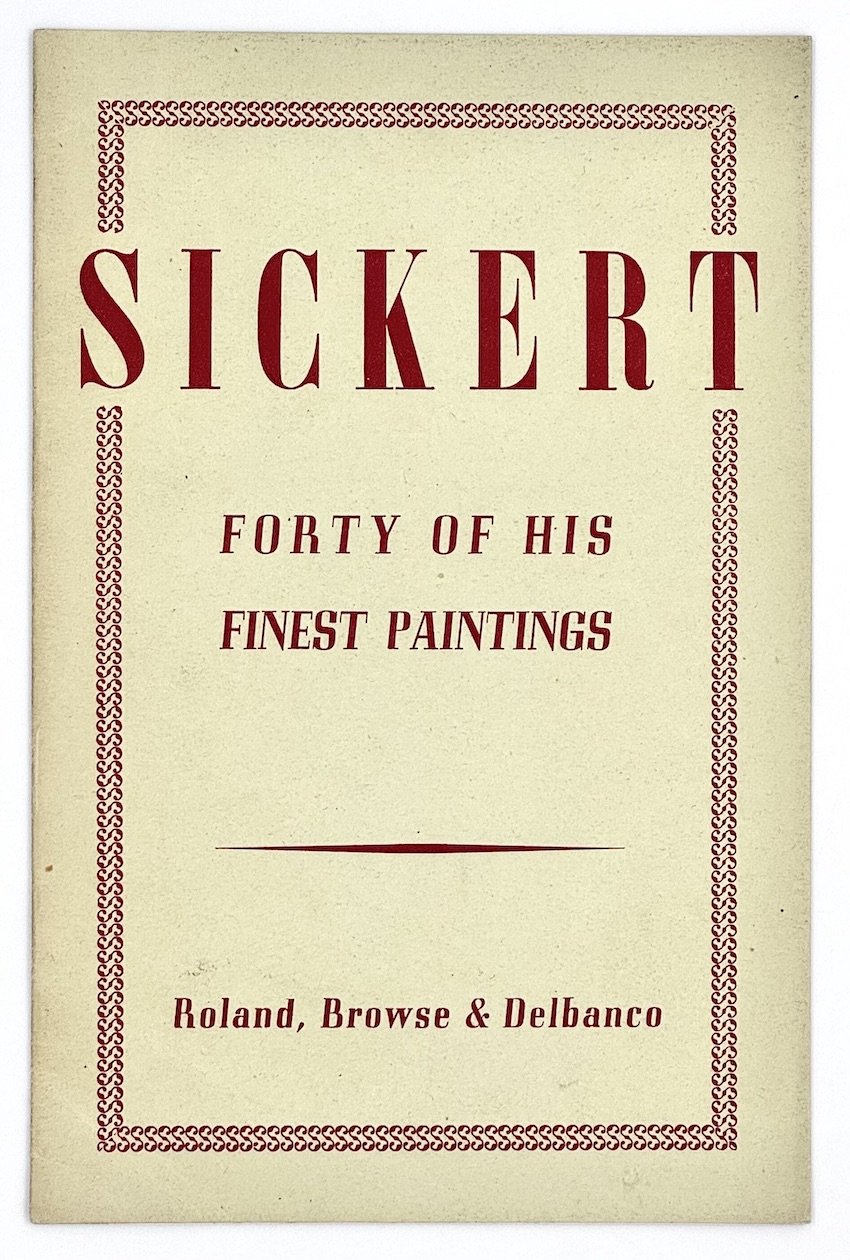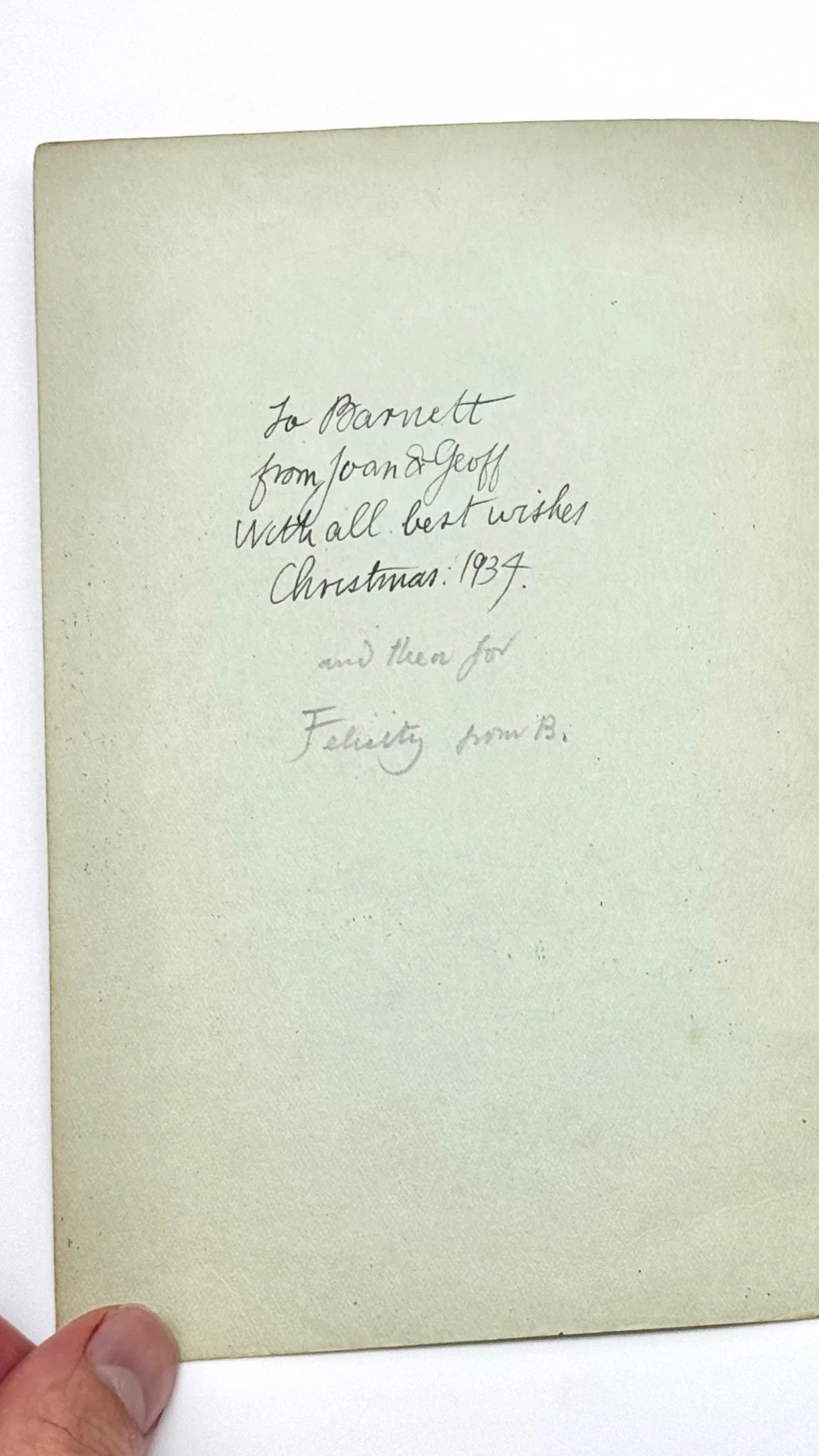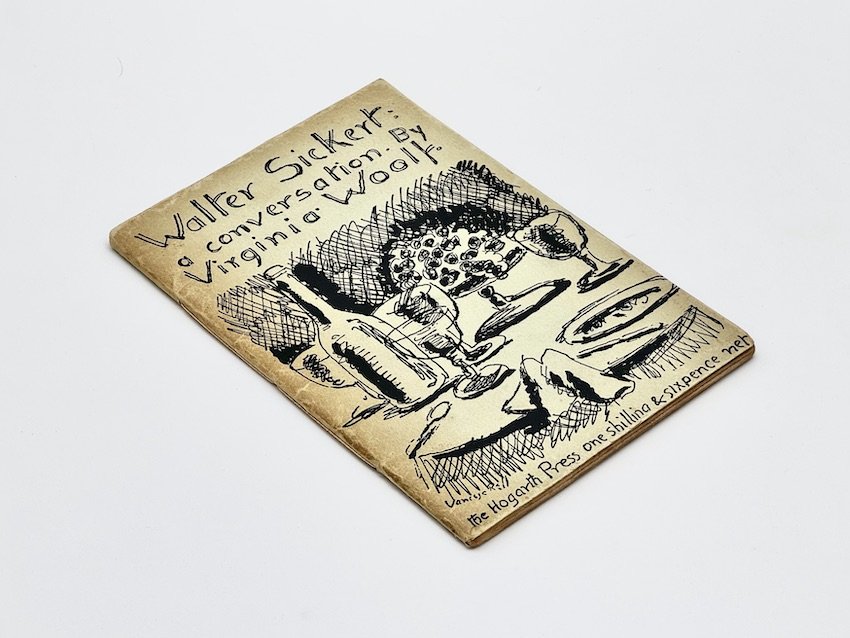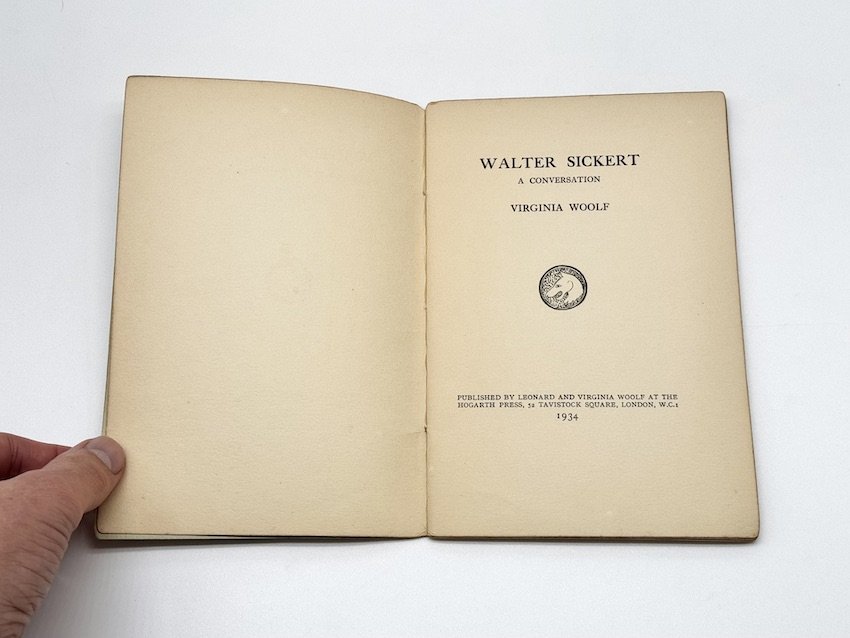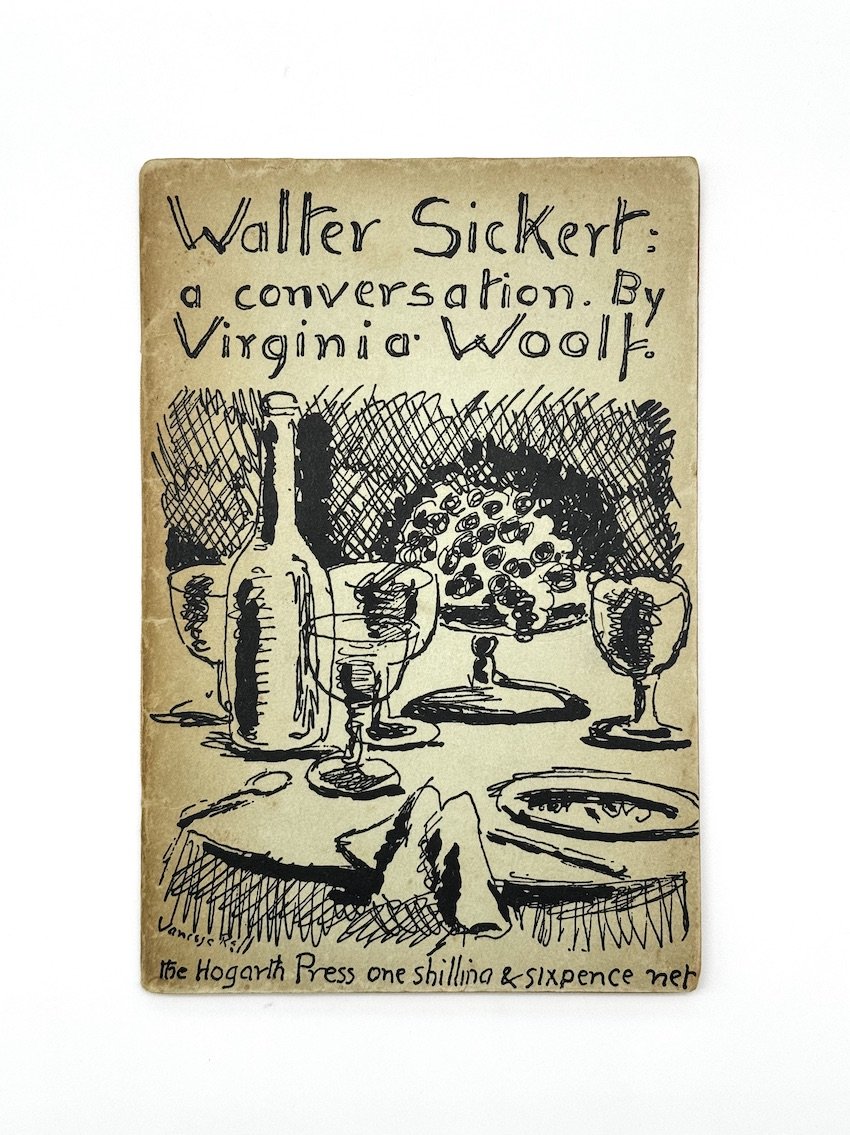Lou Klepac, Sickert Drawings: The Painter's Eye, 2022
An essential and very personal book by one of the world’s great Sickert scholars. Klepac discovered Walter Sickert soon after he arrived in London in 1958. He taught at a school in Islington near where Sickert had stayed as a child and later had a studio, and he went several times to nearby Collins’ Music Hall where Sickert had been a regular visitor. In Camden Town he prised his way into the derelict Bedford Theatre, a site deeply connected with Sickert, and in 1960 saw the Tate’s Sickert Centenary Retrospective and the exhibition at Agnews. In 1968 he organised a celebrated exhibition of Sickert’s works for the Adelaide Festival.
Including 222 painstakingly reproduced plates, Klepac’s book is dedicated to the preeminent Sickert scholar Wendy Baron, who has described it as the most beautiful book ever produced on Sickert.
-
Gifted, intelligent, and always unpredictable, Walter Sickert (1860-1942) is a singular figure among the generation of brilliant characters of the fin de siècle. He holds a unique position in Modern English painting, being equally at home in London and Paris.
He lived and worked for extensive periods in Dieppe and Venice and was an important link in the connection between English and French painting in the latter part of the nineteenth century. After an important apprenticeship with Whistler, he changed his allegiance to Degas and adopted his method of painting from drawings.
Drawing became the activity by which Sickert extracted what he called “the visual facts” enabling him to paint from drawings in the studio. Sickert investigated the visible world, making innumerable notes on any scrap of paper; he also made detailed drawings as studies for his paintings. It is these drawings which are the subject of this book drawings that are directly connected to some of his most important paintings, some of which are also reproduced.
The text is in two parts, The Artist’s Progress through the eyes of his contemporaries and The Painter’s Eye, which examines Sickert’s lifelong quest to find the best way to use oil paint and how drawings were made as blueprints for the paintings. As Sickert has written widely about drawing, the book contains a series of relevant passages from his critical writings.
The author, Lou Klepac, has had a long interest in Sickert’s work. He organised a large Sickert Retrospective for the 1968 Adelaide Festival and in 1979 an exhibition of Sickert Drawings at the Art Gallery of Western Australia which was also shown in other State Galleries.
Title: Sickert Drawings: The Painter’s Eye
Authors: Lou Klepac
Publisher: Beagle Press, Sydney
Publication Date: 2022
Format: Hardcover 290x280x27mm.
Pages: 228
Images: 222 plates
Condition: New
Stock Number: RB03517
An essential and very personal book by one of the world’s great Sickert scholars. Klepac discovered Walter Sickert soon after he arrived in London in 1958. He taught at a school in Islington near where Sickert had stayed as a child and later had a studio, and he went several times to nearby Collins’ Music Hall where Sickert had been a regular visitor. In Camden Town he prised his way into the derelict Bedford Theatre, a site deeply connected with Sickert, and in 1960 saw the Tate’s Sickert Centenary Retrospective and the exhibition at Agnews. In 1968 he organised a celebrated exhibition of Sickert’s works for the Adelaide Festival.
Including 222 painstakingly reproduced plates, Klepac’s book is dedicated to the preeminent Sickert scholar Wendy Baron, who has described it as the most beautiful book ever produced on Sickert.
-
Gifted, intelligent, and always unpredictable, Walter Sickert (1860-1942) is a singular figure among the generation of brilliant characters of the fin de siècle. He holds a unique position in Modern English painting, being equally at home in London and Paris.
He lived and worked for extensive periods in Dieppe and Venice and was an important link in the connection between English and French painting in the latter part of the nineteenth century. After an important apprenticeship with Whistler, he changed his allegiance to Degas and adopted his method of painting from drawings.
Drawing became the activity by which Sickert extracted what he called “the visual facts” enabling him to paint from drawings in the studio. Sickert investigated the visible world, making innumerable notes on any scrap of paper; he also made detailed drawings as studies for his paintings. It is these drawings which are the subject of this book drawings that are directly connected to some of his most important paintings, some of which are also reproduced.
The text is in two parts, The Artist’s Progress through the eyes of his contemporaries and The Painter’s Eye, which examines Sickert’s lifelong quest to find the best way to use oil paint and how drawings were made as blueprints for the paintings. As Sickert has written widely about drawing, the book contains a series of relevant passages from his critical writings.
The author, Lou Klepac, has had a long interest in Sickert’s work. He organised a large Sickert Retrospective for the 1968 Adelaide Festival and in 1979 an exhibition of Sickert Drawings at the Art Gallery of Western Australia which was also shown in other State Galleries.
Title: Sickert Drawings: The Painter’s Eye
Authors: Lou Klepac
Publisher: Beagle Press, Sydney
Publication Date: 2022
Format: Hardcover 290x280x27mm.
Pages: 228
Images: 222 plates
Condition: New
Stock Number: RB03517
An essential and very personal book by one of the world’s great Sickert scholars. Klepac discovered Walter Sickert soon after he arrived in London in 1958. He taught at a school in Islington near where Sickert had stayed as a child and later had a studio, and he went several times to nearby Collins’ Music Hall where Sickert had been a regular visitor. In Camden Town he prised his way into the derelict Bedford Theatre, a site deeply connected with Sickert, and in 1960 saw the Tate’s Sickert Centenary Retrospective and the exhibition at Agnews. In 1968 he organised a celebrated exhibition of Sickert’s works for the Adelaide Festival.
Including 222 painstakingly reproduced plates, Klepac’s book is dedicated to the preeminent Sickert scholar Wendy Baron, who has described it as the most beautiful book ever produced on Sickert.
-
Gifted, intelligent, and always unpredictable, Walter Sickert (1860-1942) is a singular figure among the generation of brilliant characters of the fin de siècle. He holds a unique position in Modern English painting, being equally at home in London and Paris.
He lived and worked for extensive periods in Dieppe and Venice and was an important link in the connection between English and French painting in the latter part of the nineteenth century. After an important apprenticeship with Whistler, he changed his allegiance to Degas and adopted his method of painting from drawings.
Drawing became the activity by which Sickert extracted what he called “the visual facts” enabling him to paint from drawings in the studio. Sickert investigated the visible world, making innumerable notes on any scrap of paper; he also made detailed drawings as studies for his paintings. It is these drawings which are the subject of this book drawings that are directly connected to some of his most important paintings, some of which are also reproduced.
The text is in two parts, The Artist’s Progress through the eyes of his contemporaries and The Painter’s Eye, which examines Sickert’s lifelong quest to find the best way to use oil paint and how drawings were made as blueprints for the paintings. As Sickert has written widely about drawing, the book contains a series of relevant passages from his critical writings.
The author, Lou Klepac, has had a long interest in Sickert’s work. He organised a large Sickert Retrospective for the 1968 Adelaide Festival and in 1979 an exhibition of Sickert Drawings at the Art Gallery of Western Australia which was also shown in other State Galleries.
Title: Sickert Drawings: The Painter’s Eye
Authors: Lou Klepac
Publisher: Beagle Press, Sydney
Publication Date: 2022
Format: Hardcover 290x280x27mm.
Pages: 228
Images: 222 plates
Condition: New
Stock Number: RB03517



